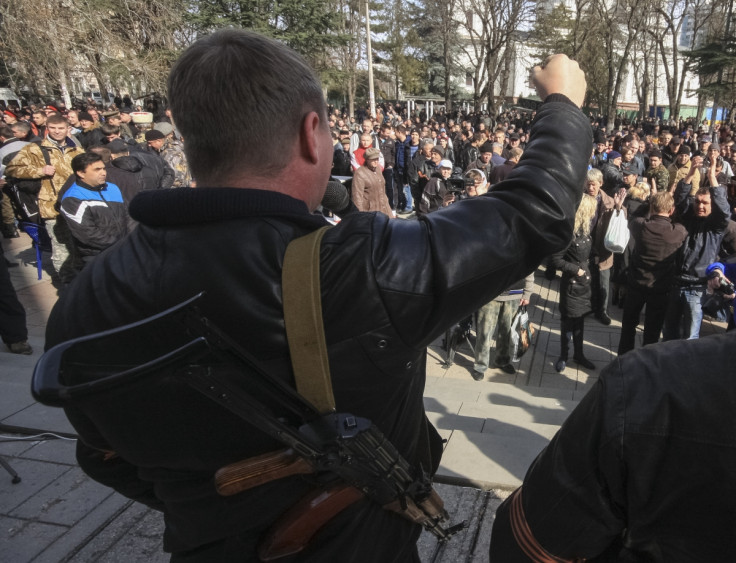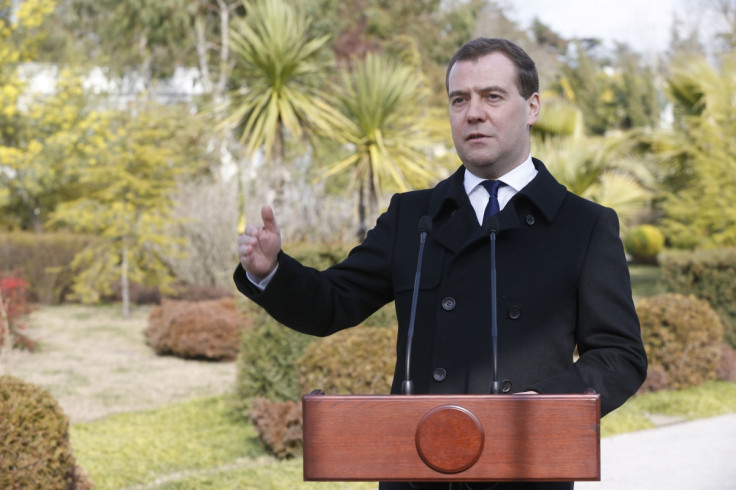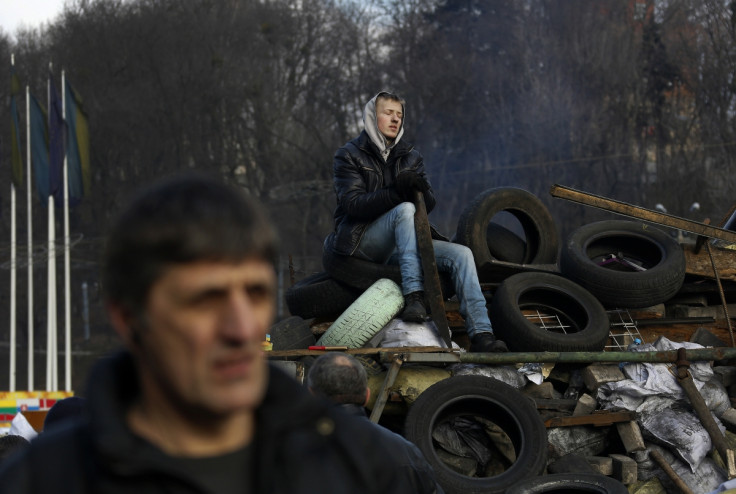Russia and West Fight Cold War over Ukraine's Crimea

Diplomatic tension between Russia and the West over Ukraine is mounting amid fears the Kremlin might send in troops and break up the country.
The Russian foreign ministry has accused the EU and the US of exploiting the protest movement for geopolitical 'power grabbing' and claimed the post-revolution interim authorities were employing "terrorist methods" against ethnic Russians siding with the ousted president, Viktor Yanukovich.
The ministry said that the western-backed peace deal that ended the three-month-long protest was being "used as cover to promote a scenario of forced change of power in Ukraine".
It added that western powers were encouraging neo-Nazi and anti-Semitist manifestations and voiced concerns about possible human rights violations against ethnic Russians.
The Russian foreign ministry tweeted:
Referring to ‘revolutionary expediency’,parliament ‘prints’ resolutions and laws aimed at infringing upon humanitarian rights of Russians
— MFA Russia (@mfa_russia) February 24, 2014"We hear calls for putting a ban on the Russian language, eliminating parties and organisations, and closing dissenting mass media," the ministry added.
Prime minister Dmitry Medvedev also aired doubts on the legitimacy of Ukraine's new authorities, who have been recognised by western countries.
Medvedev described the recognition as an "aberration" and said that those now in power were guilty of an "armed mutiny" against Yanukovich.

The stark statements came after civic groups in Crimea, where Russia has a large naval base hosting some 25,000 troops, called for Russia to send in the military to protect them from an imminent "genocide".
The revolution has stirred up divisions between ethnic Russians, who live predominantly in eastern Ukraine and support the fugitive Yanukovich and ethnic Ukrainians, who led the protests that toppled him.
The strain is particularly strong in Crimea, the only region where ethnic Russians make up a majority of the population.
In the regional capital of Simferopol, hundreds of people answered a call to defend the region and signed up for an ad hoc militia to fight back at revolutionaries.
Squads of riot police from the elite Berkut ["Golden Eagle"] special forces unit, who are accused of killing tens of protesters, were met in the streets by cheering crowds and hailed as heroes, as they returned to their Crimean homes.
Last week a senior Russian government official told the Financial Times that the Kremlin was ready to fight a war over Crimea.
"If Ukraine breaks apart, it will trigger a war," the unnamed official told the newspaper.
"They will lose Crimea first [because] we will go in and protect [it], just as we did in Georgia," the official continued.
In 2008 Russian President Vladimir Putin ordered his troops to invade Georgia, claiming people in the breakaway region of South Ossetia were at risk of genocide, after Tbilisi launched a crackdown on separatists.
Moscow still has a strong military presence in the region, whose independence is recognised only by Russia, Nicaragua, Venezuela, Nauru and Tuvalu.

Over the weekend the US warned the Kremlin to keep out of Ukraine.
National security adviser Susan Rice told NBC that Russia would make a "grave mistake," if it was to deploy the military there.
"It's not in the interests of Ukrainia or of Russia or of Europe or the United States to see the country split," Rice said.
The warning was rebuffed by Moscow.
"We have seen the expert evaluations of Susan Rice, which are based on repeated US military interventions in multiple places around the world, especially where the US administration is of the opinion that the norms of Western democracy are in danger or ruling regimes begin too clearly 'to get out of hand'," a source at the Russian foreign ministry told Interfax news agency.
"We consider that the current presidential adviser will give this kind of advice about the error of using force to the US leadership in the event of a decision about a new intervention."
Analysts described the standoff as being reminiscent of the Cold War era.
© Copyright IBTimes 2025. All rights reserved.






















